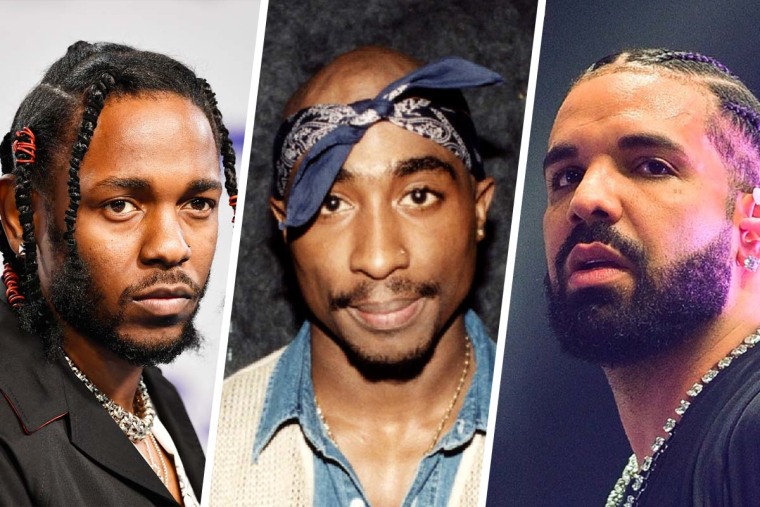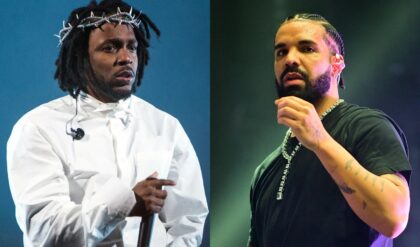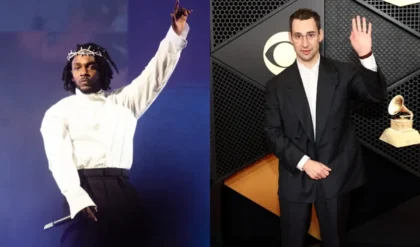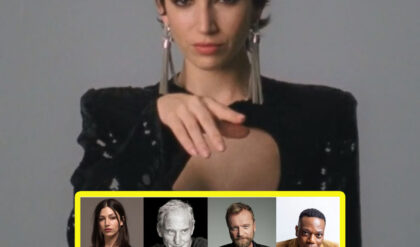If your Wi-Fi wasn’t out this weekend, then you probably know that it’s been a busy few days for two of the biggest stars in rap music.
The back-and-forth rap battle between Kendrick Lamar and Drake got even more intense than it had already been as they made insidious accusations about each other. Lamar and Drake accused one another of illegal and immoral behavior and dipped into the well of rumors to try to humiliate and shame one another.
Kendrick Lamar and Drake have accused one another of illegal and immoral behavior and have dipped into the well of rumors to try to humiliate and shame one another.
The rapid-fire battle crossed the line into the personal many tracks ago. And even though many have found the substance of each emcee’s lyrics to be beyond the pale, the battle itself is bigger than the two of them, and is, instead, a part of a much bigger fight for the soul of hip-hop. It’s the fight between authenticity and commercialism, between the most artfully made hip-hop and the hip-hop that flies off the shelves.
Drake has an entire catalog of hit records. His rhymes are catchy and it’s unlikely that a party, club, wedding or bar/bat mitzvah won’t feature at least a few of his songs. At the same time, perhaps because the biracial Drake is Canadian-born with suburban roots seeped in above-average levels of privilege, he has struggled to be considered authentically hip-hop.
Months ago, when Yasiin Bey (formerly known as Mos Def), a hip-hop purist, was asked, “Is Drake hip-hop?” he said, “Drake is pop to me. In the sense that if I was in Target in Houston and I heard a Drake song … It feels like a lot of his music is compatible with — shopping.”

That hilarious characterization of Drake’s music gets at the heart of what many people in hip-hop culture have always felt: that he and his music are inauthentic. While in the middle of this rap babble with Lamar, he helped fuel the accusations that he’s not authentic when he used artificial intelligence-generated voices of the late Tupac Shakur and Snoop Dogg on his song “Taylor Made Freestyle.”
That song, which Drake removed from the internet after Tupac’s estate threatened him with legal action and praised Lamar as “a good friend to the Estate,” was largely seen as creative, but also tone deaf.
On the other end sits Kendrick Lamar. Whereas Drake’s commercial-friendly style and sing-songy lyrics have been the lifeblood of popular consumption, Lamar has built his brand of music as a purist, focusing on complex rhyme schemes, themes ringing of pro-Blackness and putting attention to detail and lyrics over party jams. The respective success of each of these artists illustrates this fairly plainly: Lamar has repeatedly garnered more critical acclaim. He’s won more than three times the number of Grammys Drake has — 17 to 5 — and he even won a Pulitzer Prize for his album “Damn.”
That album, the first hip-hop album to ever win a Pulitzer, was lauded by the selection committee as a “virtuosic song collection unified by its vernacular authenticity and rhythmic dynamism that offers affecting vignettes capturing the complexity of modern African-American life.”
But when we’re counting rap stars’ sales, there’s simply no comparison. Drake has outsold everybody. Just like in every genre — books, movies, even TV — there are camps that favor works that considered more layered, genuine and artistic over the bestsellers. It’s just as true in hip-hop.
But when we’re counting sales, there’s simply no comparison. Drake has outsold everybody.
We’ve seen this movie before. In the early 2000’s, Jay-Z and Nas were two of rap’s biggest titans. They, too, clashed in a series of diss records when Nas was largely considered the people’s champ, a commercial underdog whose calling card was complex lyricism and an adherence to hip-hop’s most authentic elements.
Jay Z, on the other hand, although he had come from Brooklyn’s Marcy Projects and had real-life street cred, had nevertheless ascended to a level of commercial success that Nas hadn’t. (Eventually, Jay-Z’s commercial success would lead to him serving as pitchman of his own signature Reebok sneakers and inking a deal with Samsung that provided an advance copy of his album “Magna Carta Holy Grail” via an app available to Galaxy phone users.) It was a battle that pitted hip-hop’s evolution into a global and commercial force against the music’s roots as an authentic sub-culture of urban America.
Their backgrounds should make it clear that Drake is no Jay-Z. However, at its core, his battle with Kendrick Lamar is a similar struggle — because of hip-hop’s continued growth and evolution.
Authenticity, being true to oneself and one’s neighborhood is (or at least was) an ethos in hip-hop. But the commercial success of rap music has attracted culture vultures and allowed many to pillage, pilfer and profit from a space that isn’t inherently theirs.
Rap has always struggled to police itself and set its own barriers around who profits, but as he promotes himself as a champion of the culture, his recent recordings make clear that Lamar doesn’t just think Drake makes weak music; he thinks Drake doesn’t belong, that he is bad for hip-hop culture. Making himself the gatekeeper, he’s essentially telling one of the biggest stars in the industry that “on behalf of the culture, you’ve worn out your welcome.”
In some ways, Lamar’s callout may also be instructive for everyone from Logic to Machine Gun Kelly to G Eazy. Many of us may have forgotten the cautionary tale that was Vanilla Ice and his song “Ice, Ice, Baby,” which, frustratingly, was the first rap single to ever reach the top of the pop charts. The song did enjoy some initial acceptance from Black listeners, but Vanilla Ice finding success without paying his dues and the inaccuracies and omissions in stories meant to burnish his street cred caused him to be sidelined and eventually disregarded by the culture.
This should not be construed to be based in race. Rap has always embraced even non-Black artists who have understood their place in the culture and acted accordingly. Eminem, the Beastie Boys and 3rd Bass all come to mind. Even so, Lamar is arguing that Drake — not just because of his background but also because of the music he makes — has an elevated place that he doesn’t have. The idea that the culture needs defending against one of the most commercially popular artists of our day is hugely significant.
For many people who like the way the music has evolved, that element of the pair’s beef may seem tired and overblown. Lamar’s penchant for rhyme schemes, allegory and metaphors makes him a relic to many of today’s listeners. They may also ask: Why shouldn’t the expansion of hip-hop as a global economic and cultural force invite voices like Drake who speak to audiences who just want to have fun and enjoy a good time over dance beats?
The story here isn’t that rappers are making diss records about each other. That’s always been the case. The competitive sport of the emcee is not a bad thing. In fact, it’s always been a part of what makes hip-hop so engrossing. The story is that the fight is much bigger than Kendrick Lamar and Drake. They’re fighting about what hip-hop is, where it is, and where it should go in the future.





